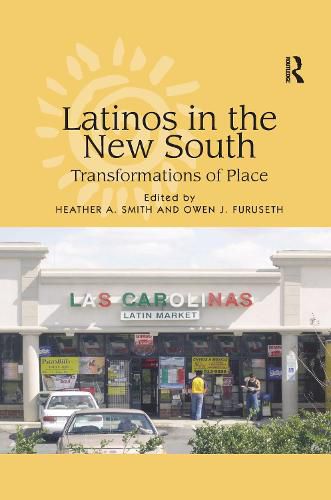Readings Newsletter
Become a Readings Member to make your shopping experience even easier.
Sign in or sign up for free!
You’re not far away from qualifying for FREE standard shipping within Australia
You’ve qualified for FREE standard shipping within Australia
The cart is loading…






Latinos have emerged as one of the fastest-growing ethnic populations in the American South. A ‘New South’ is taking shape in a region where culture and class relations have traditionally been constructed along black-white divides and experience absorbing culturally or linguistically foreign immigrants has been limited. This book presents a multidisciplinary examination of the impacts and responses across the Southeastern United States to contemporary Latino immigration. The rapid and large-scale movement of Latinos into the region has challenged old precepts and forced Southerners to confront the impacts of globalization and transnationalism in their daily lives. Drawing on theoretical perspectives as well as empirical research, the work provides insights into the Latino experience in both urban and rural locales. Each chapter is centred on the nexus between the immigrants’ experiences in settling and adapting to new lives in the American South and the construction of transformed social, economic, political and cultural spaces.
$9.00 standard shipping within Australia
FREE standard shipping within Australia for orders over $100.00
Express & International shipping calculated at checkout
Latinos have emerged as one of the fastest-growing ethnic populations in the American South. A ‘New South’ is taking shape in a region where culture and class relations have traditionally been constructed along black-white divides and experience absorbing culturally or linguistically foreign immigrants has been limited. This book presents a multidisciplinary examination of the impacts and responses across the Southeastern United States to contemporary Latino immigration. The rapid and large-scale movement of Latinos into the region has challenged old precepts and forced Southerners to confront the impacts of globalization and transnationalism in their daily lives. Drawing on theoretical perspectives as well as empirical research, the work provides insights into the Latino experience in both urban and rural locales. Each chapter is centred on the nexus between the immigrants’ experiences in settling and adapting to new lives in the American South and the construction of transformed social, economic, political and cultural spaces.